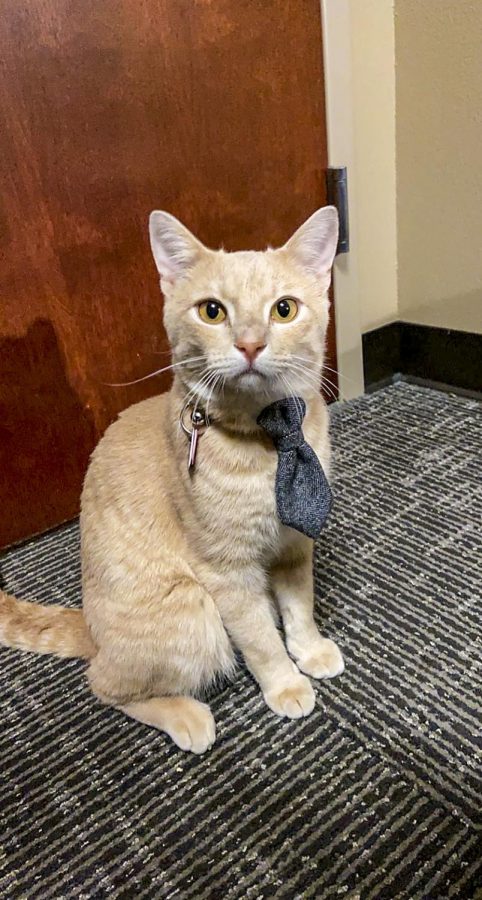Temporary policy change for non-service animals
March 2, 2021
Residence halls have allowed pets since 2013, but that has changed in the last year. COVID-19 has caused SDSU to temporarily abandon their non-service animal policy in residence halls.
In previous years, students who had pets that were not registered as a service or emotional support animal (ESA) could pay a $300 deposit to allow them to live in Hansen Hall or the Meadows apartments.
This policy change could be tough for students that are used to having their pets living with them on campus.
Heather Fischer, a freshman animal science major, said it is important for a campus to be pet-friendly when students are choosing their college.
“I know incoming students would probably be interested if they can keep their dog, cat, rabbit etc. on campus with them. That would probably be a pull factor for SDSU,” Fischer said.
Fischer said that while she gets to take her service animal everywhere, she definitely understands wanting to live in a pet-friendly hall.
The ESA policy is still in place for those students that need it, as long as the correct paperwork is filled out.
There is a two-step process to registering an animal as an emotional support animal.
“There is an animal verification form that I distribute to students,” Nancy Hartenhoff-Crooks, disability services coordinator, said. “The student fills out their part and a mental health professional fills out a portion, and then they return it to me.”
If that accommodation is deemed necessary, they pass on those forms to Housing and Residential Life.
For most students, having animals on campus is seen as a positive, not just as a stress reliever but also as a way to increase morale in student housing.
Christina Kaberline, associate director for the Office of Housing and Residential Life, explained that the number of animals on campus has fallen from 52 to 34 in the last year.
“[Having pets] is a way that we can support our students in being successful here,” Kaberline said.
Hannah Owens explained her own experience owning an ESA on campus.
“I think it just conveys a larger message of acceptance, which is very important, especially in uncertain times like now,” Owens said.
Now that she has experienced living with a pet on campus, Owens said she could never consider a university that is not pet-friendly and hopes that students who do not have their pets registered as ESAs will also be able to enjoy pets on campus again soon.
SDSU is working to bring non-service pets back to campus as soon as possible, something that gives some hope for a normal school experience again next year.





















